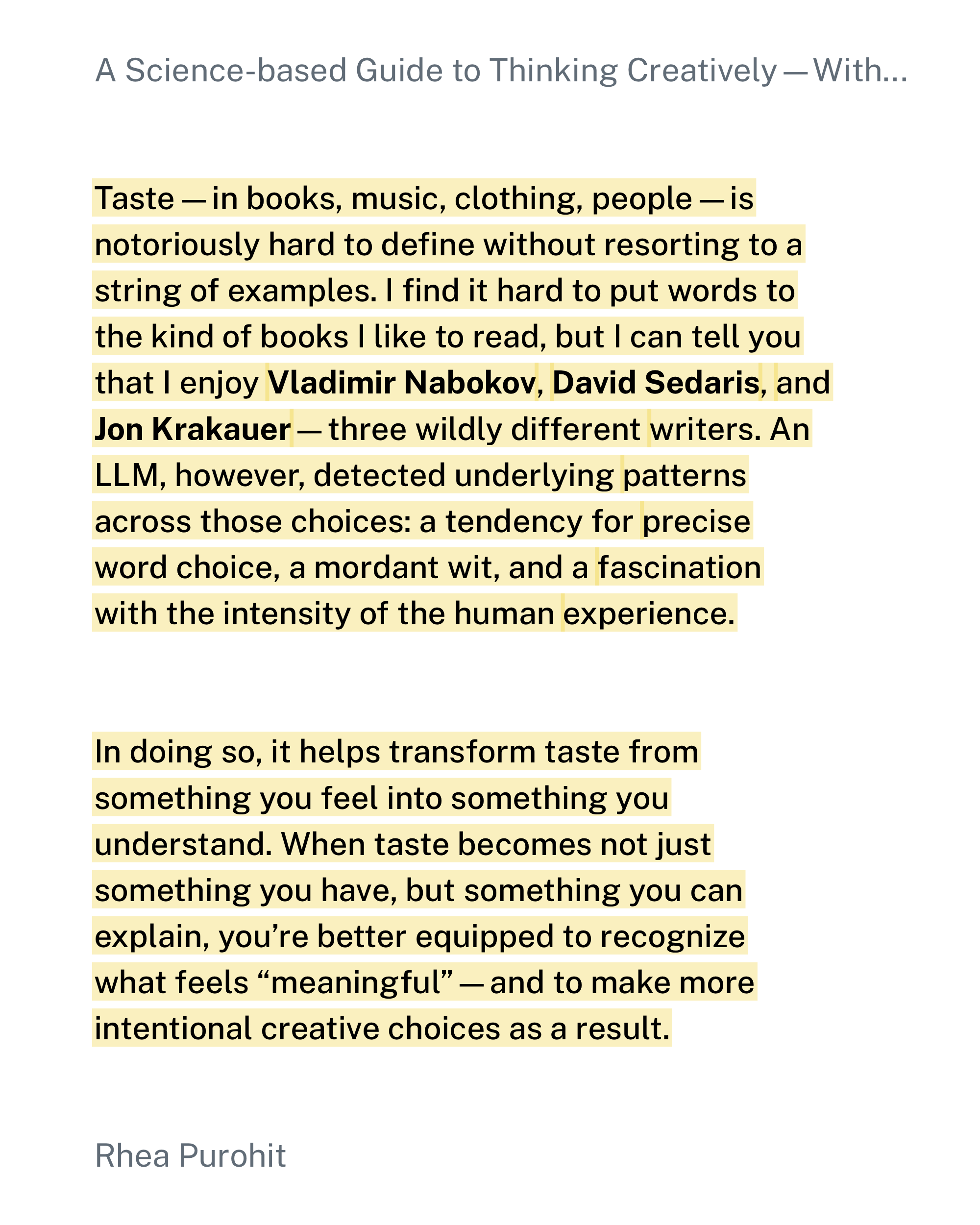Making sense of AI
We have already outsourced the worst part of writing (checking grammar) and math (long division) to machines like spell checkers and calculators, which freed us from these tedious tasks. It would be natural to use LLMs to extend the process. And this is indeed what we have seen in some early research on using AI for work. People who use AI to do
... See moreEthan Mollick • Co-Intelligence: Living and Working With AI
Do people enjoy working more if they use AI?
So how should we use AI to help generate ideas? Fortunately, the papers, and other research on innovation, have some good suggestions. When you do include AI in idea generation, you should expect that most of its ideas will be mediocre. But that’s okay—that’s where you, as a human, come into the equation. You are looking for ideas that spark
... See moreEthan Mollick • Co-Intelligence: Living and Working With AI
AI is trained on vast swaths of humanity’s cultural heritage, so it can often best be wielded by people who have a knowledge of that heritage. To get the AI to do unique things, you need to understand parts of the culture more deeply than everyone else using the same AI systems. So now, in many ways, humanities majors can produce some of the most
... See moreEthan Mollick • Co-Intelligence: Living and Working With AI
You actually have likely read enough at this point to be a good prompt engineer. Let’s start with the third principle I shared earlier—treat AI like a person and tell it what kind of person it is. LLMs work by predicting the next word, or part of a word, that would come after your prompt, sort of like a sophisticated autocomplete function. Then
... See moreEthan Mollick • Co-Intelligence: Living and Working With AI
Another key aspect of idea generation is to embrace variance. Research shows that, to find good novel ideas, we likely have to come up with many bad novel ideas because most new ideas are pretty bad. Fortunately, we are good at filtering out low-quality ideas, so if we can generate novel ideas quickly and at low cost, we are more likely to generate
... See moreEthan Mollick • Co-Intelligence: Living and Working With AI
As humans are good at filtering out low-quality ideas, generating lots of ideas quickly is a great use for AI
So how do we do it? Let’s imagine that we want to come up with 20 ideas for marketing slogans for a new mail-order cheese shop. The AI can generate those for us, but we will get even better quality if we remember the principle of telling AI who it is: You are an expert at marketing. When asked to generate slogan ideas you come up with ideas that
... See moreEthan Mollick • Co-Intelligence: Living and Working With AI
But there are already signs that AI can help. Research has successfully demonstrated that it is possible to correctly determine the most promising directions in science by analyzing past papers with AI, ideally combining human filtering with the AI software. And other work has found that AI shows considerable promise autonomously conducting
... See more
